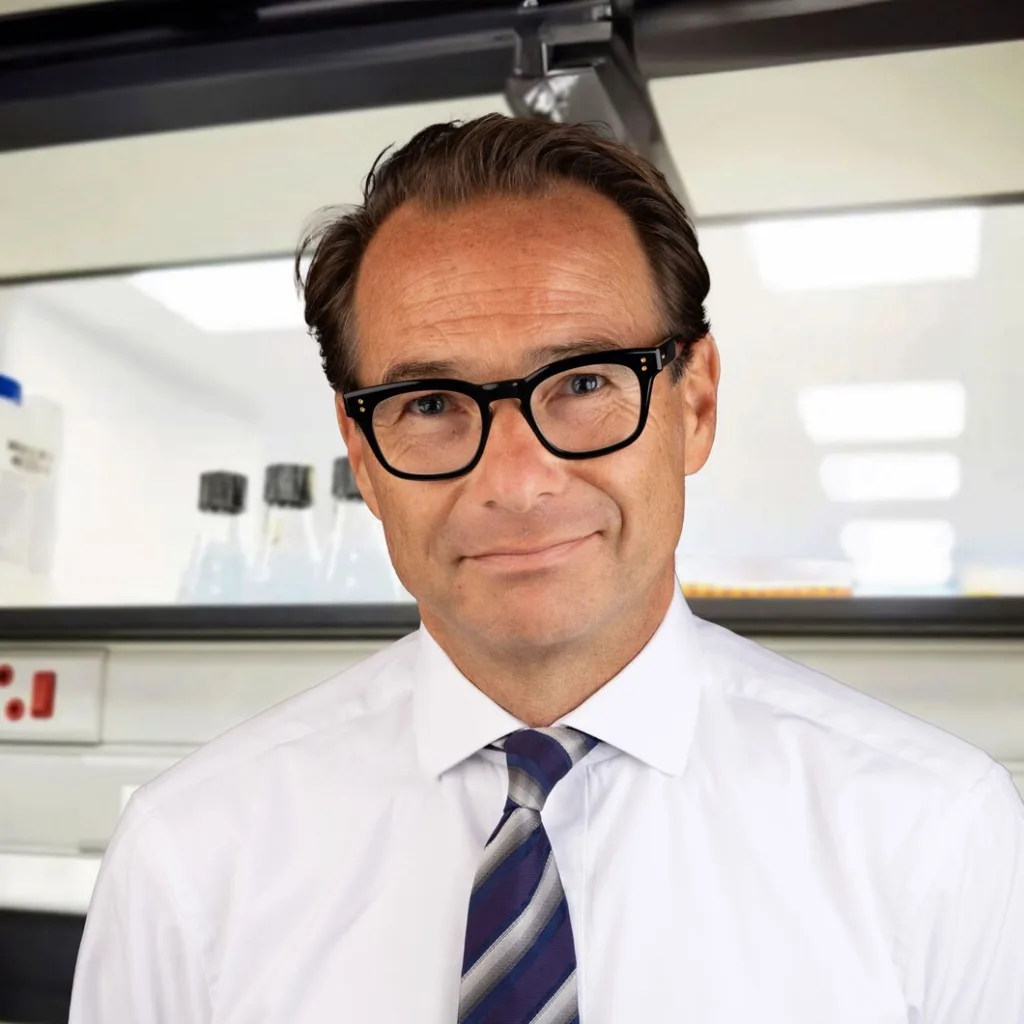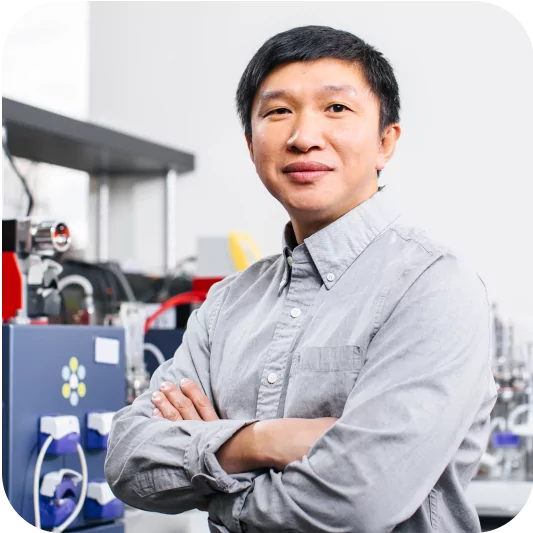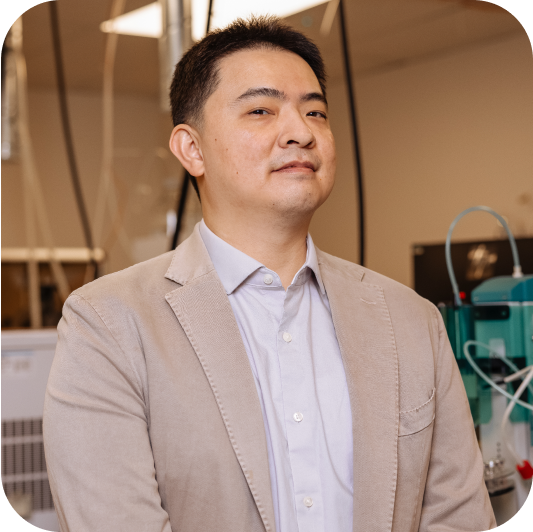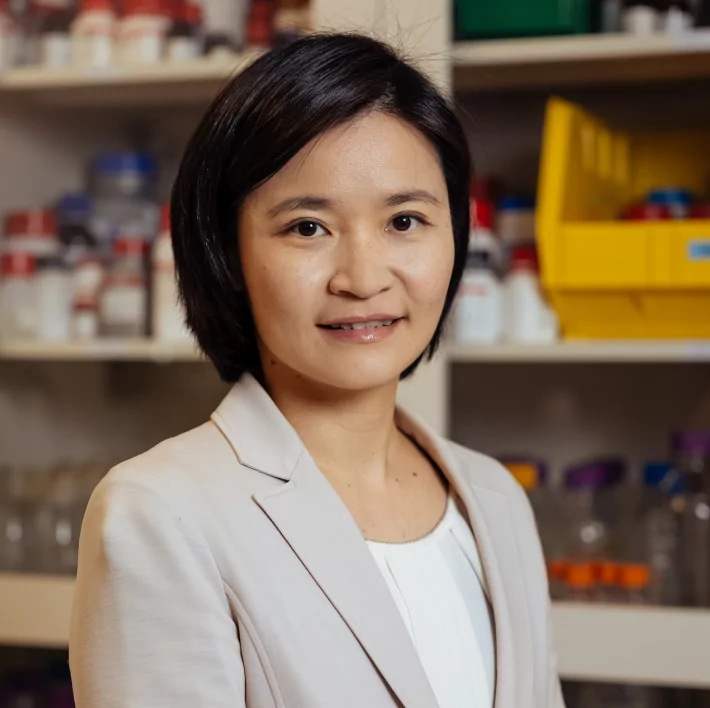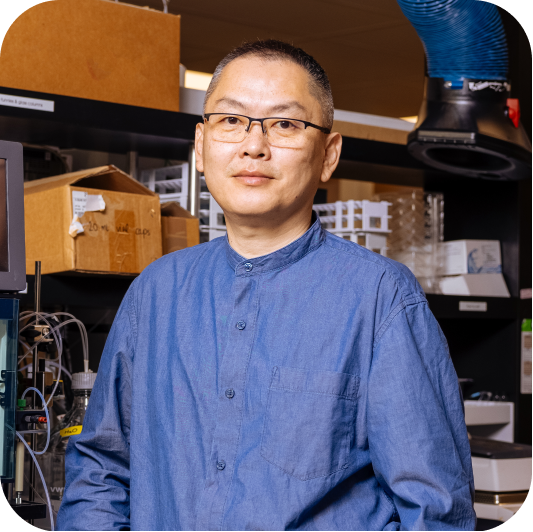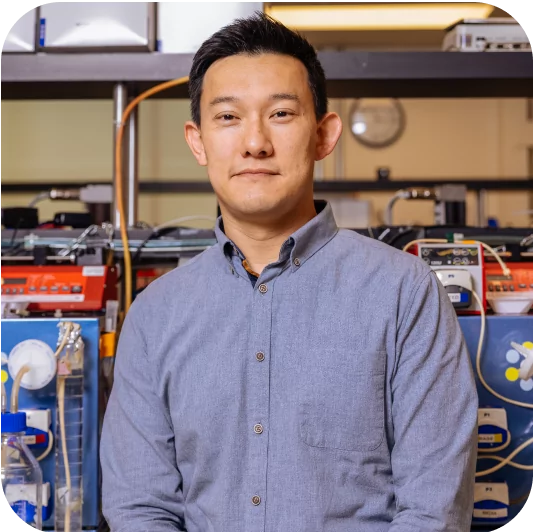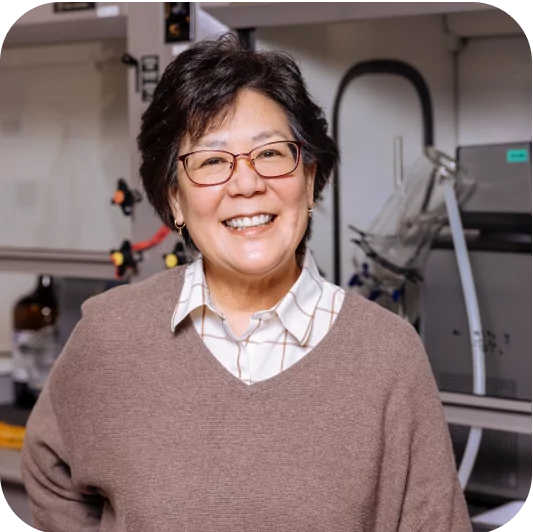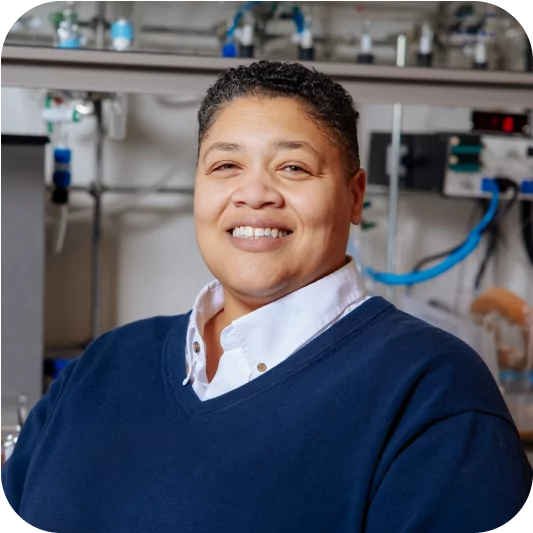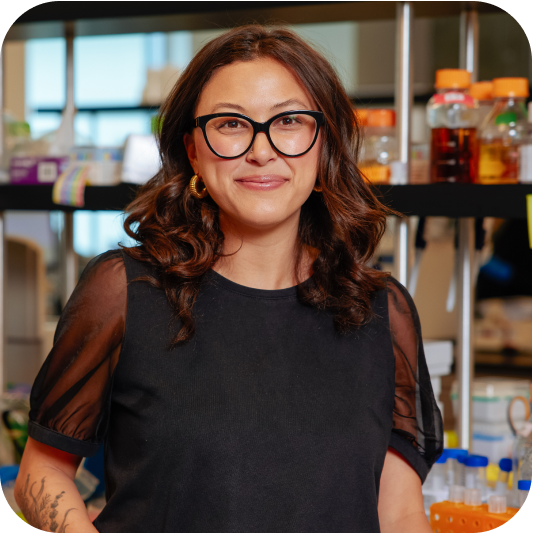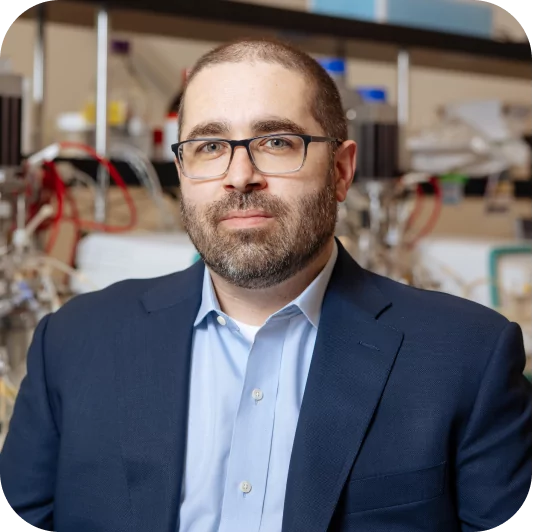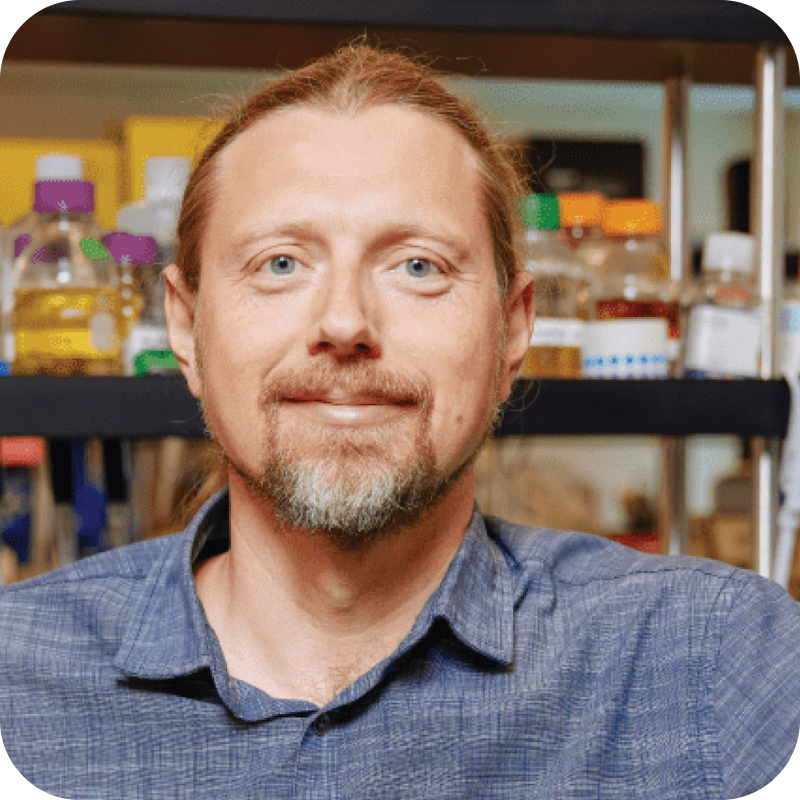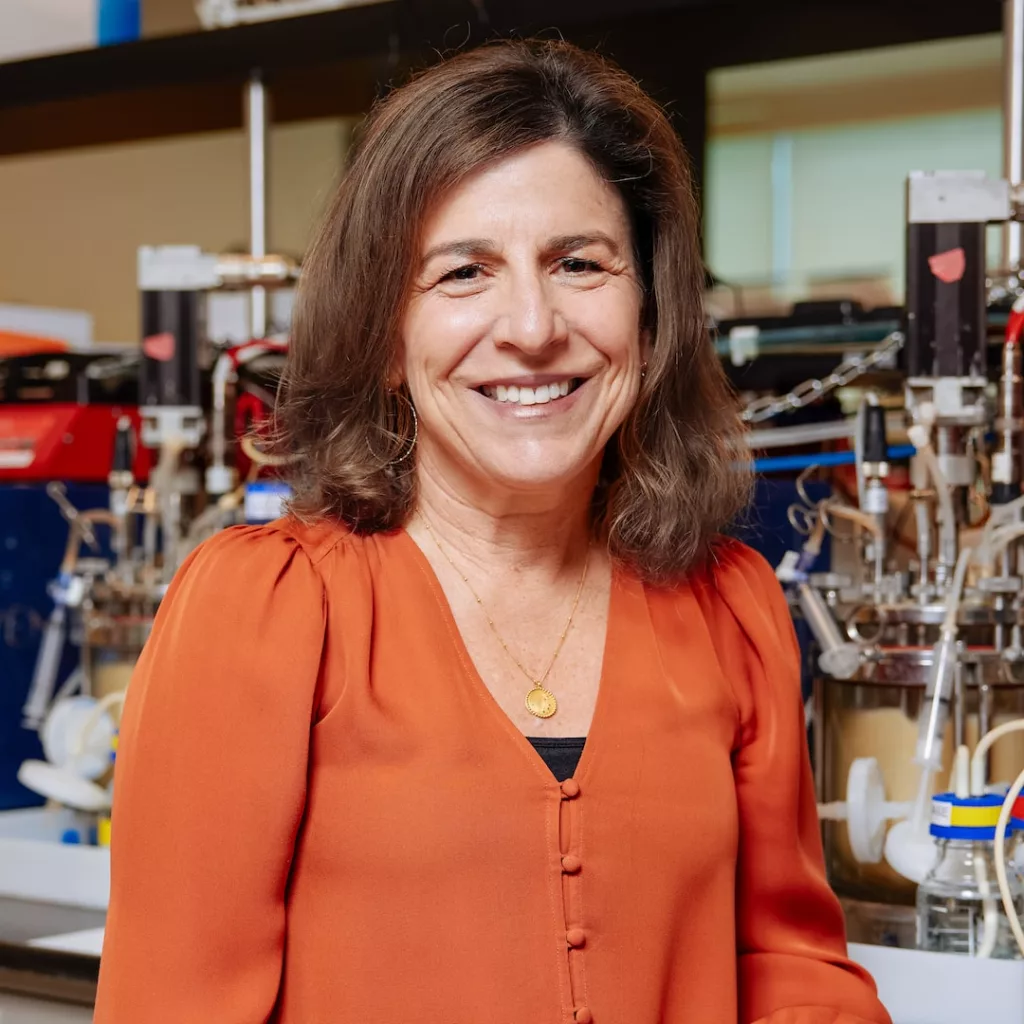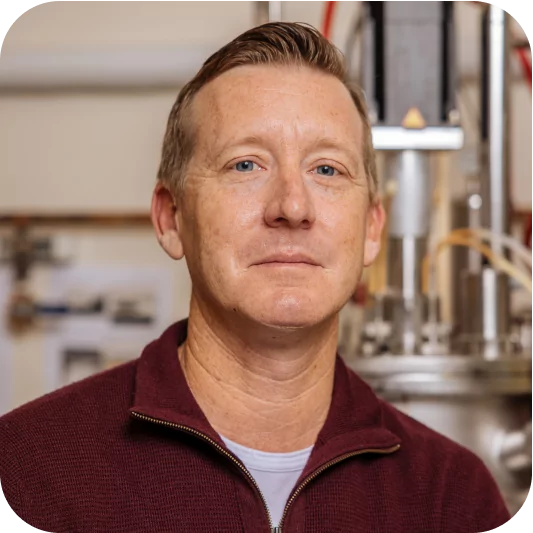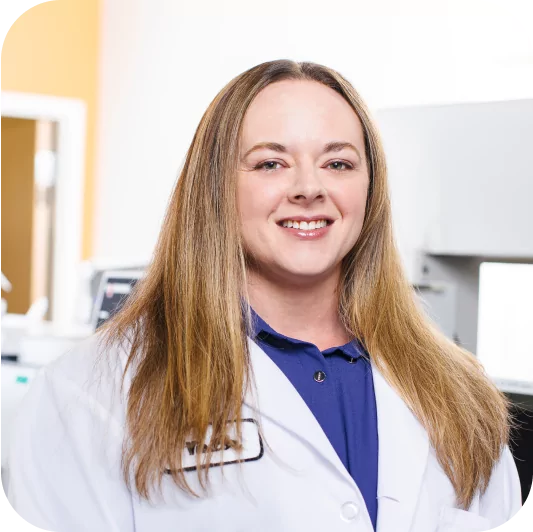At Antheia, we spend a lot of time talking about synthetic biology due to the nature of our work engineering yeast to produce key starting materials (KSMs) and active pharmaceutical ingredients (APIs) for essential medicines. However, synbio’s cousin, the long-established field of synthetic chemistry, plays a vital role. This is the third and final blog in an educational series about synthetic chemistry. If you missed them, you can find part one here, and part two here.
As we’ve discussed in this series, synthetic chemistry has long been the backbone of small-molecule drug development. However, certain molecules – either due to their size, configuration, or characteristics – remain difficult or even impossible to synthesize by current synthetic chemistry processes.
Drug development and manufacturing is an expensive and arduous process. Limitations of synthetic chemistry can add significantly to the cost and time needed to produce challenging targets, leaving potentially valuable medicines out of reach with current techniques. This means that while current synthetic chemistry approaches to drug development are responsible for the efficient and scalable production of thousands of therapeutics, this process remains limited by what it can achieve alone. The solution to synthetic chemistry’s shortcomings may lie in biosynthesis – the synthesis that occurs naturally in living cells.
Is biosynthesis a magic bullet?
The goal of drug development is to identify specific compounds with targeted effects. In an ideal scenario, a good drug candidate recognizes its target molecule by binding to it and having a desired effect, such as an agonistic or antagonistic effect on a receptor for example.
Determining drug candidates with that level of specificity is no simple task, but when it comes to problem-solving, the natural world is full of solutions. Due to the limitations inherent with synthetic chemistry, only a small portion of the chemical space is accessible for drug development and discovery, therefore limiting pharmaceutical innovation. With biosynthesis, we are able to unlock much more of chemical space and access vast, underexplored opportunities for drug development and discovery.
Biology has mastered the art of synthesizing big, complex, and specific molecules. In direct contrast to synthetic chemistry, biosynthesis occurs in the aqueous environment of the cell, opening up a new range of molecules historically underrepresented by synthetic chemistry. Additionally, these living systems have undergone millennia of evolution to produce enzymes that can precisely recognize, bind, and configure molecules with a specificity that synthetic chemists can only dream of. But biology has its own limitations.
Evolution is famously a tinkerer and not an engineer. Natural solutions that have evolved are adapted specifically to solve the inherent problems they face. To meet the challenges in modern drug development and ultimately make a meaningful impact on patients, we need to engineer enzymes to perform new reactions, in new environments, and at improved levels of activity. We can achieve just that by combining the best of synthetic chemistry and synthetic biology.
The best of both worlds
Synthetic biology allows us to re-engineer enzymes to fit our needs. Synbio also unlocks whole organisms as potential production platforms; by engineering pathways for each step of chemical synthesis, we can turn microbes into factories to produce our target molecules using fermentation.
Synthetic chemistry, despite its constraints in producing certain types of compounds, will continue to play a major role by adding to the diversity of structures we can access and analyze. Where nature solved problems by evolving chemical solutions, their structures are blueprints that synthetic chemistry processes can complement and enhance.
Together, the potential synergy between synthetic chemistry and synthetic biology is enormous. Enzymes engineered specifically to function in synthetic chemistry environments can act as in vitro biocatalysts, adding specificity to synthetic chemistry reactions and potentially reducing costly purification steps. Similarly, synthetic chemistry’s understanding of structure informs which amino acids impact key characteristics of our engineered enzymes, such as rigidity, solubility, and coordination with the substrate.
Antibiotics best illustrate the combination of biology and synthetic chemistry coming together. The penicillins used today are not natural products but are the result of chemists tinkering with the original compounds accidentally discovered by Alexander Fleming. The commonly prescribed antibiotic amoxicillin is a prime example – Penicillin G is produced by Penicillium chrysogenum and chemically converted to amoxicillin. These semi-synthetic derivatives allow us to develop new antibiotics effective against pathogenic bacteria that have long ago evolved resistance to their natural counterparts. As antibiotic resistance continues to evolve, it may be necessary to utilize every tool in our biological and chemical arsenal to develop the next generation of antibiotics.
Thus, combining synthetic biology and synthetic chemistry opens up new possibilities in biological synthesis and downstream augmentation. This creates a far bigger and more dynamic space for drug discovery, development, and manufacturing.
Complementary technology
At Antheia, our platform is primarily built around the power of synthetic biology and biosynthesis, and we also leverage other approaches, including chemical synthesis, to make complex molecules – key starting materials (KSMs) and active pharmaceutical ingredients (APIs) – with proven medicinal value and well-established markets. These molecules often have long metabolic pathways and pose a challenge for both biological engineering and synthetic chemistry approaches. Our goal is to transfer these pathways, typically originating from plants, into yeast cells that can be efficiently used as a biomanufacturing platform at industrial scales.
Transferring an entire metabolic pathway to another organism comes with several challenges. The major issue from the biosynthesis perspective is that the enzymes did not evolve to function in yeast cells and therefore may be less active in that environment, so we must re-engineer or rebuild certain enzymes to perform in their new host.
Evolution optimizes enzymes to perform their required functions in their natural environments. In the lab, we need these enzymes to work in new environments and often to perform new functions, whether that’s working faster, longer, or performing new reactions. We can use evolution as a tool to continue the job of optimizing and improving enzymes for their new roles. We iterate on these improved enzymes until they are capable of working at commercial scale to make our molecule of interest.
Target compounds for biosynthesis must be chosen carefully – some candidates are better for biosynthesis than others, as their chemical reactions are more readily and fruitfully replaced by enzymatic equivalents. On the other hand, synthetic chemistry remains a better option for candidates where reactions cannot be replaced, and all products can be further adapted, improved, or finalized in downstream processing.
As one could imagine, the toolbox is constantly expanding. More enzymes are reported and characterized every day, more genomic and transcriptomic data are available to search through, and more engineered enzymes are reported with expanded activities. These engineered enzymes provide an essential information resource into the structure-activity of different enzyme variants, which helps inform future enzyme engineering work.
The Best Tools For the Job
The long-established field of synthetic chemistry plays a vital role in the pharma space, and synthetic biology represents a new generation of technology that is advancing drug development and discovery efforts even further.
At Antheia, our platform leverages synthetic biology to engineer yeast to produce critical KSMs and APIs for essential medicines, and our innovation is further enhanced and complemented by tools such as synthetic chemistry. In this blog series, we’ve explored the fundamentals of both synthetic chemistry and synthetic biology, synthetic chemistry’s role in pharmaceutical manufacturing, and how both tools can work together in harmony to meet the growing demands of our healthcare systems. Synthetic chemistry will always serve as an indispensable tool in the drug development and discovery process, and thanks to synthetic biology, its inherent limitations are now no longer a barrier to deep innovation. Harnessing the natural synergy between synthetic biology and synthetic chemistry allows for a greater and bolder future for drug development than ever before.
At Antheia, we believe it is imperative to use both new and existing approaches – such as marrying synthetic biology and synthetic chemistry – to transform pharmaceutical supply chains and drive equitable access to essential medicines. By doing so, it makes global health equity and access to much-needed medicines a visionary goal that is well within reach.
